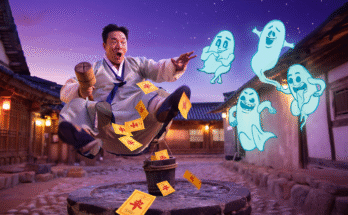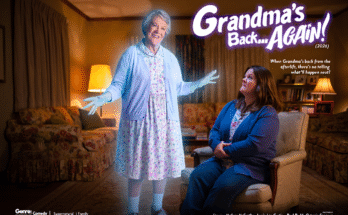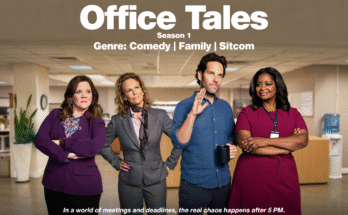When Eddie Murphy announced his return to Harlem Nights, few expected the follow-up to his 1989 classic to hit with such emotional depth and cinematic swagger. But Harlem Nights (2026) isn’t just a sequel — it’s a soulful resurrection, a story about change, resilience, and what it means to fight for a place that built you. Directed by Murphy himself, the film is both a crime saga and a love letter to the neighborhood that defined a generation.

The film opens in the early 1990s, Harlem caught between two worlds — its golden age fading, its future uncertain. Neon lights replace jazz club lanterns, gentrification creeps through the streets, and the rhythm of old Harlem is slowly silenced by progress. The once-glorious Sugar Ray’s, now shuttered and decaying, stands as a symbol of that lost era. Quick (Eddie Murphy), now gray at the temples and haunted by time, lives quietly — until Harlem calls him back.
When his young protégé, a talented musician trying to reopen Sugar Ray’s as a community space, becomes the target of a ruthless developer with criminal ties, Quick finds himself drawn back into the game he swore he’d left behind. Enter Samuel L. Jackson as Lucius Kane — a cold, charismatic power broker who hides his criminal empire behind suits, speeches, and influence. Jackson’s performance is magnetic: part preacher, part predator, a man who speaks of progress while destroying everything in his path.

Murphy’s Quick is no longer the wisecracking hustler of old. He’s slower, sharper, and weighted by the ghosts of a city that forgot him. Yet beneath the weariness lies the same wit and instinct that made him a legend. Watching Murphy and Jackson face off is pure cinematic electricity — two titans of charisma playing a deadly game of cat and mouse with Harlem’s soul hanging in the balance.
The film’s tone is masterful — a blend of nostalgia, grit, and razor-edged humor. Murphy’s direction finds beauty in contrast: the glamour of jazz-age echoes against the cold light of modernization; the laughter of old friends mingles with the whispers of betrayal. There’s a haunting melancholy in every frame, a sense that time is running out — not just for the characters, but for the Harlem they knew.
Supporting performances elevate the film even further. Up-and-coming actor Jaylon Harris shines as Darnell, Quick’s ambitious protégé whose idealism clashes with the world’s corruption. Teyana Taylor brings fiery charm as Ruby, a nightclub singer caught between love and loyalty. Together, they embody Harlem’s new generation — fierce, hopeful, and unwilling to surrender.

Visually, Harlem Nights (2026) is a feast. The cinematography captures the city like a living painting — rain-slicked streets glowing under neon, jazz echoes spilling from half-lit bars, and the skyline rising like a challenge. The soundtrack, curated by Questlove, bridges eras seamlessly: smoky saxophones blend with early ‘90s hip-hop beats, creating a rhythm that pulses through every scene.
The screenplay is equal parts biting and poetic. Murphy’s humor remains sharp, but it cuts deeper this time — every joke laced with reflection, every punchline carrying the weight of memory. When Quick mutters, “Harlem used to dance to its own beat — now it’s just noise,” it lands like both a lament and a challenge.
As the tension builds, Harlem Nights transforms into a crime thriller with heart. Quick must navigate a web of deceit, loyalty, and power, where every ally could be a traitor and every victory comes at a price. The final act — a breathtaking confrontation in the ruins of Sugar Ray’s — delivers a perfect blend of grit, style, and emotional payoff. It’s a battle not just for territory, but for dignity, for history, for the right to remember.

By the end, Harlem Nights (2026) stands as more than a continuation — it’s a meditation on legacy. It honors the past without being trapped by it, reminding audiences that culture, like Harlem itself, can bend but never break. Murphy’s closing shot — Quick walking alone down 125th Street as the dawn breaks — feels like both farewell and renewal.
Eddie Murphy has crafted a film that’s as bold as it is beautiful, mixing old-school cool with modern urgency. With powerhouse performances, stylish direction, and a soul steeped in rhythm and rebellion, Harlem Nights (2026) cements itself as one of the year’s most vital films.
⭐ Rating: 9.3/10 — Slick, soulful, and fiercely alive. A masterful return to Harlem where legends never fade, they evolve.



